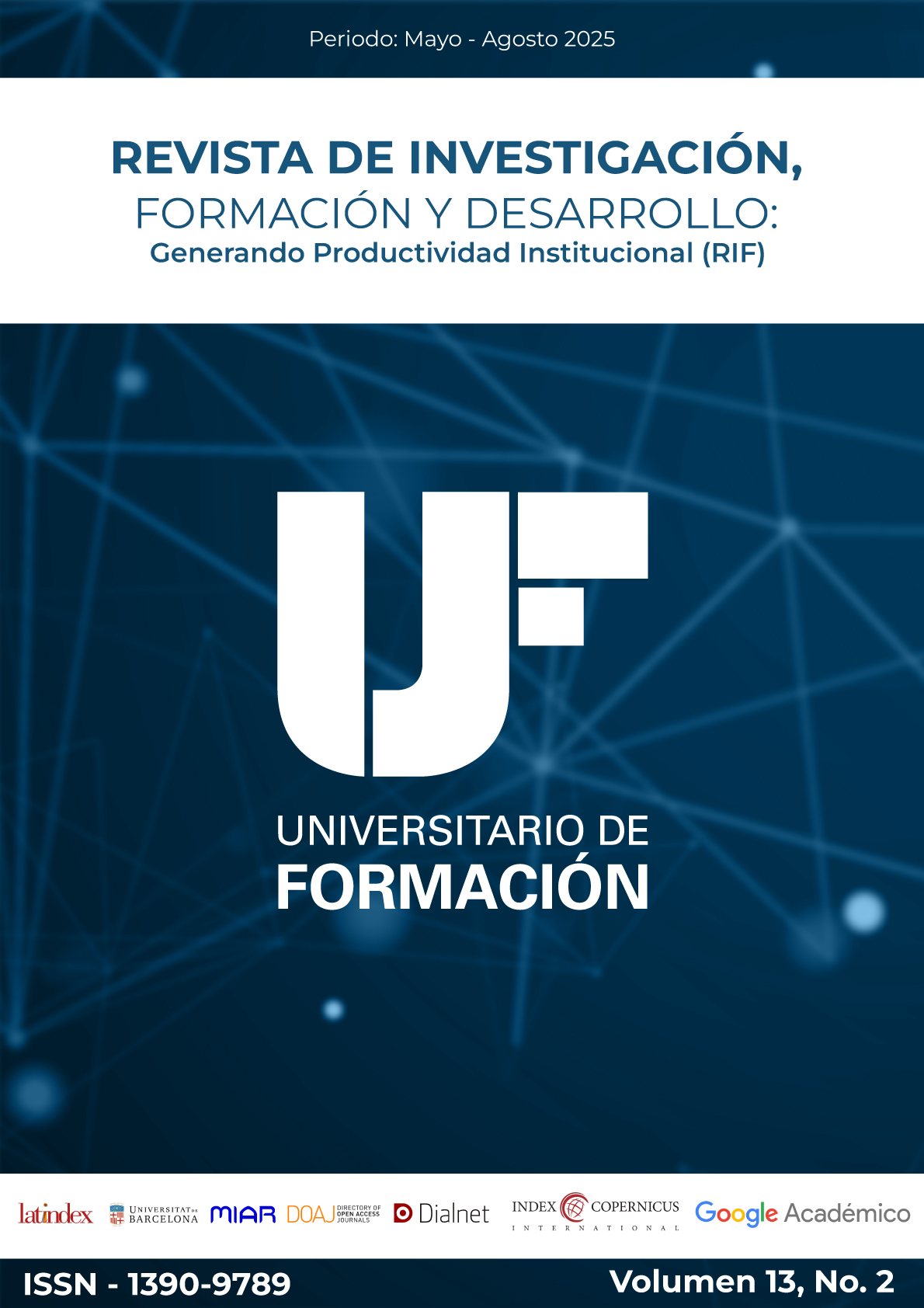The Waldorf methodology as a strategy to stimulate fine motor skills at the initial level II.cedure Manuals.
Main Article Content
Abstract
This work seeks to recognize the Waldorf methodology as a strategy to stimulate fine motor skills in the initial level II, developed in the Carlos Crespi II Educational Unit with the aim of promoting the development of fine motor skills in children of the initial level II, through the implementation of pedagogical principles of the Waldorf methodology. This alternative educational approach is characterized by its holistic view of the child, integrating art, play, nature, and free expression as means for learning and integral development. Throughout the project, micro-planning focused on recreational and recreational activities was designed that included the use of natural and recycled materials. These proposals were aimed at strengthening hand-eye coordination, motor precision and creative expression, while promoting collaborative work and positive interaction between peers. The natural environment was a key component, as it allowed students to experiment freely, develop their aesthetic sensibility, and strengthen their bond with the environment. The results showed significant advances in students' fine motor skills, as well as an improvement in their autonomy, concentration and willingness to learn. Likewise, the importance of teacher accompaniment and collaboration with families in the educational process was highlighted. In conclusion, the project reaffirms the effectiveness of the Waldorf methodology as a valuable pedagogical strategy for motor and emotional development in early childhood, proposing a comprehensive, experiential and inclusive educational approach.
Article Details

This work is licensed under a Creative Commons Attribution-NonCommercial-ShareAlike 4.0 International License.
Este trabajo tiene licencia DE Atribución/Reconocimiento-NoComercial-CompartirIgual 4.0 Internacional. CC BY-NC-SA 4.0.
How to Cite
References
Bastías, C. P. M., Lueg, C. B. F., González, P. E. A., Espinoza, D. S., & Troncoso, E. L. N. (2021). Juego en primera infancia: Aproximación al significado otorgado por educadoras de párvulos. Cuadernos de Investigación Educativa, 12(1), Article 1. https://doi.org/10.18861/cied.2021.12.1.3063
Belio, E. F. (2023). De qué manera se hace uso del arte en la educación Waldorf en primaria a diferencia de la educación argentina? https://repositorio.uai.edu.ar/handle/123456789/1892
Carlgren, F. (2020). Pedagogía Waldorf. Editorial Antroposófica. https://ideaswaldorf.com/wp-content/uploads/2023/03/Una-Ed.hacia-la-libertad.pdf
Carreño, M. M., & Carreño, P. M. (2019). El aula invertida versus método tradicional: En la calidad del aprendizaje The Flipped classroom versus traditional method: On the quality of learning. Revista Electrónica sobre Tecnología, Educación y Sociedad, 6(11), Article 11. https://www.ctes.org.mx/index.php/ctes/article/view/692
Cobacango Bejarano, F., & Simbaña Haro, M. (2023). Pedagogía Waldorf: Revisión al desarrollo integral en niños menores de cinco años. 593 Digital Publisher CEIT, 8(5), 1010-1021. https://dialnet.unirioja.es/servlet/articulo?codigo=9124320
Gómez Betanzos, E., Iglesias Martínez, M. J., & Lozano Cabezas, I. (2022). Las voces docentes de las Escuelas Waldorf: Un estudio cualitativo. http://rua.ua.es/dspace/handle/10045/125588
Granda, R. A. V., Rodríguez, I. M. B., & Palacios, G. P. J. (2023). El Constructivismo en entornos virtuales y su aplicación en los estudiantes. Revista de Propuestas Educativas, 5(9), Article 9. https://doi.org/10.61287/propuestaseducativas.v5i19.2
Hernández-Sampieri, R., & Mendoza, C. (2020). Metodología de la investigación: Las rutas cuantitativa, cualitativa y mixta. Mcgraw-hill México. https://www.academia.edu/download/64591365/Metodolog%C3%ADvestigaci%C3%B3n.%20Rutas%20cuantitativa,%20cualitativa%20y%20mixta.pdf
Mecías, V. C. (2022). Estimulación temprana en el desarrollo de la motricidad fina en los niños y niñas de 12 a 24 meses de edad del centro de desarrollo infantil “Brisas del Mar” del Cantón San Vicente”. Revista EDUCARE - UPEL-IPB - Segunda Nueva Etapa 2.0, 26(Extraordinario), Article Extraordinario. https://doi.org/10.46498/reduipb.v26iExtraordinario.1699
Párraga, J. M. T., & Meza, A. K. T. (2022). Metodología lúdica en la construcciòn de la identidad y autonomía de los niños de Educación Inicial. Revista EDUCARE - UPEL-IPB - Segunda Nueva Etapa 2.0, 26(Extraordinario), Article Extraordinario. https://doi.org/10.46498/reduipb.v26iExtraordinario.1682
Quiroga Uceda, P. (2019). Génesis, difusión y traducción de la pedagogía Waldorf de Rudolf Steiner. Educació i història: Revista d’història de l’educació, 33, 203-227. https://dialnet.unirioja.es/servlet/articulo?codigo=6789356
Segura Martínez, P. (2020). Experiencia docente de implementació de un rincón de psicomotricidad en un aula de Educación Infantil: Niveles y tipos de actividad física durante la metodología de juego libre por rincones. Desafíos de investigación educativa durante la pandemia COVID19, 2020, ISBN 978-84-1377-172-4, págs. 423-426, 423-426. https://dialnet.unirioja.es/servlet/articulo?codigo=7819369
Tracchia, R. C. (2018). Propuesta Pedagógica Waldorf para la Primera Infancia en la República Argentina [PhD Thesis, Universidad Nacional de Luján]. https://ri.unlu.edu.ar/xmlui/handle/rediunlu/1183

